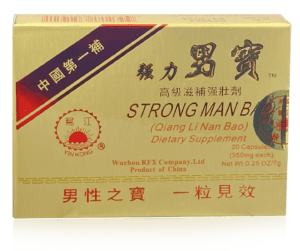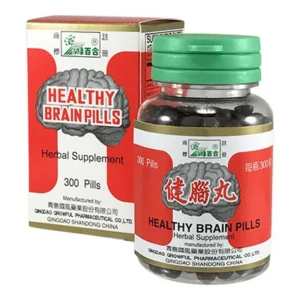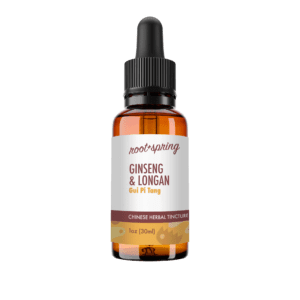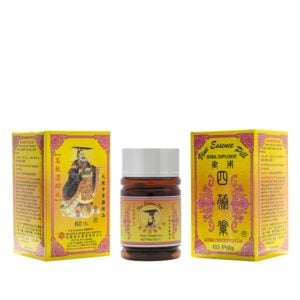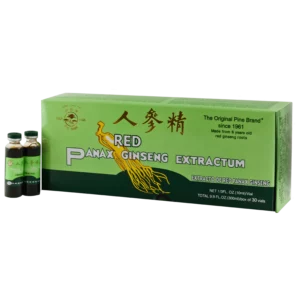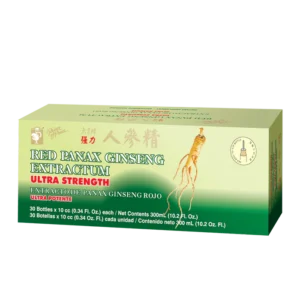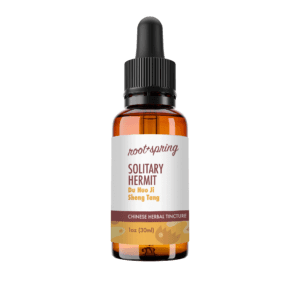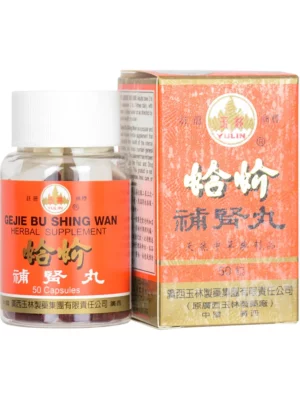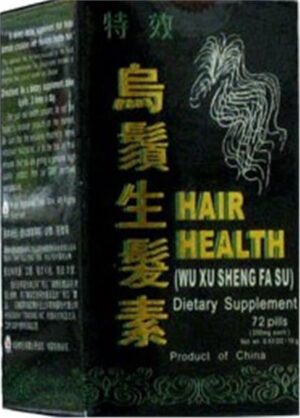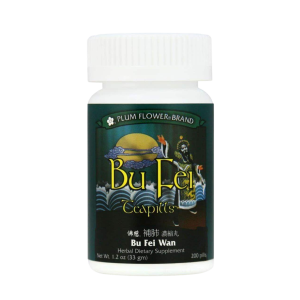Ren Shen
English Name: ginseng root
Literal Translation: “man’s plant”, “man root”
Pharmaceutical Name: Radix Ginseng
Medica Category: Qi-Tonifying Herbs
Properties: Ren Shen enters the Lung and Spleen channels; it is sweet and slightly bitter in nature and slightly warm in temperature.
What is Ren Shen?:
The Chinese Herb Ren Shen (or Asian ginseng) is the root of the perennial herbaceous plant Panax ginseng (C.A. Mey.) that grows in the mountain regions between Northeastern China and Korea. Red Ginseng is ginseng root that is steamed (with the root bark left intact) until it turns red. It is more yang in nature (i.e. hotter) than white ginseng, which is ginseng root that is dried but not steamed. White ginseng is more yin in nature and so its overall tonifying effects may be a bit less “direct” or “intense” (which might be ideal for use with someone with excess heat or yin deficiency in their pattern who nonetheless needs/wants Ren Shen in their TCM regimen… it always comes down to the individual and his or her specific presentation).
Panax ginseng comes in a variety of grades from a variety of sources: wild ginseng that has been in the ground for at least 10-15 years, grown in the mountain regions of Jilin province (Manchuria) and North Korea are considered to be the best quality in the world. Other varieties of wild and semi-wild ginseng are also grown in the mountainous regions of Jilin province and Korea are considered to be superior in quality. Commercial grade Panax ginseng is cultivated more widely throughout northeastern China to help supply increasing demand in world markets. While not considered “superior” in quality, it is nonetheless still produces Ren Shen that is effective in its medicinal qualities.
These medicinal qualities of ginseng have been widely discussed in popular culture— it has been revered as the “king of herbs” in TCM going back 2,000+ years and is said to increase longevity, sexual potency, concentration, and overall health etc… In modern times, pharmacological research has shown ginseng to be an adaptogen—that is, it regulates various systems of the body depending on dosage levels and the state of the person ingesting the herb. This modulating effect extends to the central nervous system, cardiovascular system, endocrine system, and immune system. Furthermore, it has been shown to lower blood pressure, cholesterol levels, and liver enzymes (Chen and Chen, 838). Its actions discussed in terms of Traditional Chinese Medicinal theory are discussed below.
Traditional Chinese Medicine (TCM) Therapeutic Actions of Ren Shen:
Ren Shen greatly tonifies yuan (source) qi, which is the fundamental qi in the body which underlies all of its other functions. This herb is used when yuan qi has collapsed after profuse perspiration, severe vomiting or diarrhea, excessive loss of blood, or chronic illness that has left the body severely weakened. Clinical presentation of qi/yang collapse may include shallow respiration, shortness of breath, cold extremities, and feeble pulse.
Ren Shen tonifies Spleen qi when it is deficient. Clinical presentations of Spleen qi deficiency include fatigue, poor appetite, loose stools, and a puffy tongue with teeth marks around the sides (sometime referred to as a “scalloped” tongue).
Ren Shen addresses the clinical presentations of shortness of breath, wheezing, and cough due to Lung qi deficiency. The mechanism by which Ren Shen performs this action is through its ability to tonify yuan qi, which in this context is equivalent to saying that Ren Shen tonifies Kidney energy when it is deficient. According to TCM theory, the Kidneys grasp the Lung qi and pull it down into the body—this is how we draw in a deep breath. So it follows that if the Kidney energy if deficient, we can see things like wheezing, shortness of breath, and cough manifest in the body.
Ren Shen promotes the generation of body fluids and relieves thirst to address xiao ke (“wasting and thirsting syndrome”) and thirst from qi and yin deficiencies that is not quenchable by water intake.
Yuan (source) qi also nourishes the Heart; Ren Shen, then, also has an effect to nourish the Heart and calm disturbed shen, and improve cognitive function.
Ren Shen tonifies qi and blood and is commonly used in formulas that address these deficiencies.
Ren Shen tonifies qi and yang (i.e. Kidney energy) to treat impotence.
–safety/clinical notes:
Contraindicated in excess conditions (e.g. bleeding from blood heat, liver yang rising, Lung fire with excess phlegm accumulation etc…).
Overdose/misuse of Ren Shen can lead to various heat-related signs (such as headache, blurred vision, insomnia, palpitations, increase in body temperature, increase in blood pressure etc…). Mild overdose is treated by discontinuing the herb and applying symptomatic treatment. Treatment of gross overdose of Ren Shen is discussed in detail in Chen and Chen pp. 837-8.
Products Containing Tag: Ren Shen – Ginseng – Radix Ginseng
-
Strong Man Bao – Qiang Li Nan Bao
Add to CartStarting at $6.25
-
Healthy Brain Pills (Jian Nao Wan) – by LV Bai He Brand
Add to Cart$11.99
-
Gui Pi Tang (Ginseng and Longan) – Liquid Extract (Tincture)
Add to CartStarting at $14.00
-
Red Panax Ginseng Extractum – Pine Brand (w/Alcohol)
Add to CartStarting at $9.99
-
Ultra Red Panax Ginseng Extractum (by Prince of Peace)
Add to CartStarting at $9.99
-
Wu Xu Sheng Fa Su Healthy Hair Supplement
Add to CartStarting at $6.99

